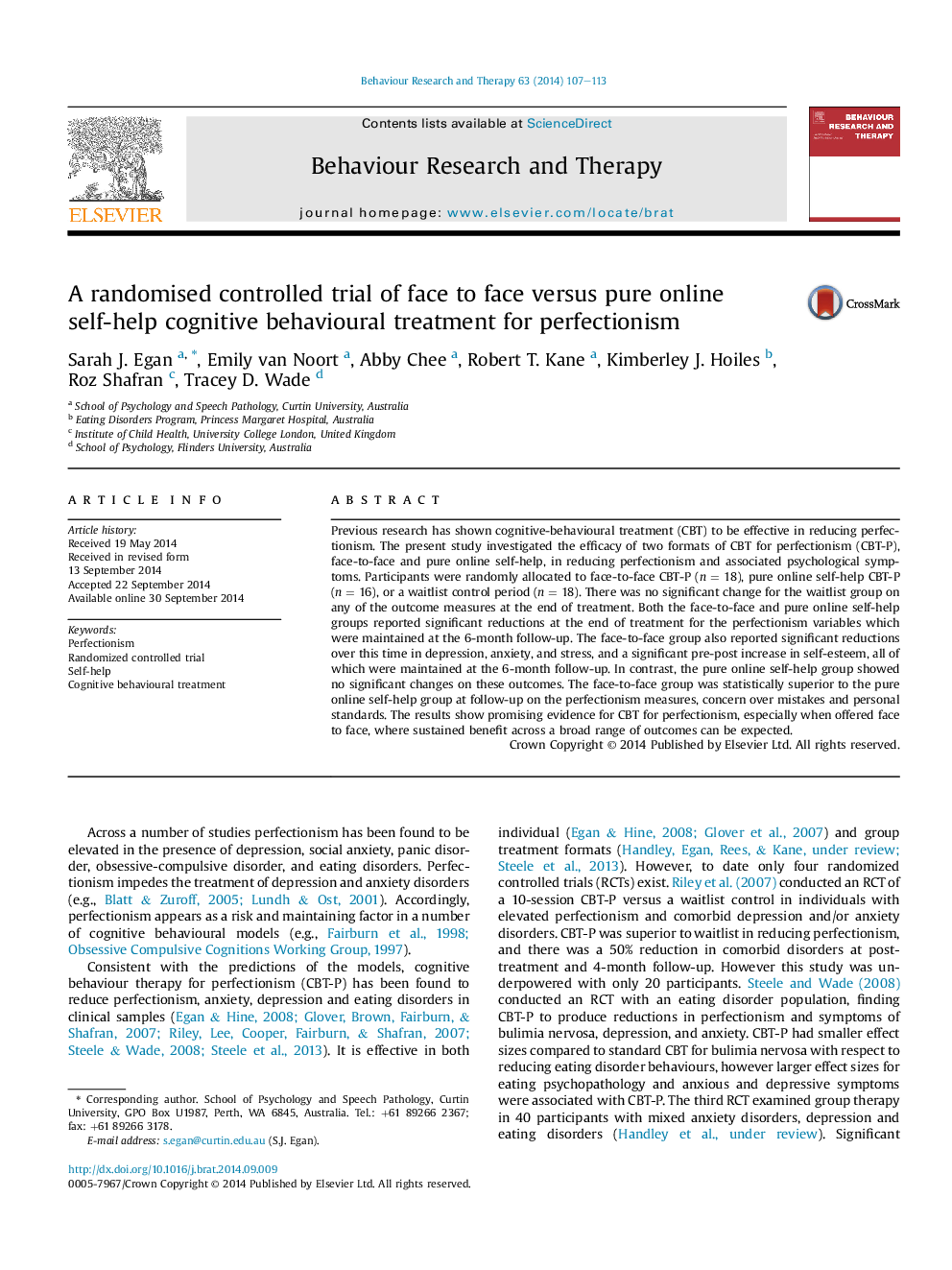| Article ID | Journal | Published Year | Pages | File Type |
|---|---|---|---|---|
| 7262560 | Behaviour Research and Therapy | 2014 | 7 Pages |
Abstract
Previous research has shown cognitive-behavioural treatment (CBT) to be effective in reducing perfectionism. The present study investigated the efficacy of two formats of CBT for perfectionism (CBT-P), face-to-face and pure online self-help, in reducing perfectionism and associated psychological symptoms. Participants were randomly allocated to face-to-face CBT-P (n = 18), pure online self-help CBT-P (n = 16), or a waitlist control period (n = 18). There was no significant change for the waitlist group on any of the outcome measures at the end of treatment. Both the face-to-face and pure online self-help groups reported significant reductions at the end of treatment for the perfectionism variables which were maintained at the 6-month follow-up. The face-to-face group also reported significant reductions over this time in depression, anxiety, and stress, and a significant pre-post increase in self-esteem, all of which were maintained at the 6-month follow-up. In contrast, the pure online self-help group showed no significant changes on these outcomes. The face-to-face group was statistically superior to the pure online self-help group at follow-up on the perfectionism measures, concern over mistakes and personal standards. The results show promising evidence for CBT for perfectionism, especially when offered face to face, where sustained benefit across a broad range of outcomes can be expected.
Related Topics
Health Sciences
Medicine and Dentistry
Psychiatry and Mental Health
Authors
Sarah J. Egan, Emily van Noort, Abby Chee, Robert T. Kane, Kimberley J. Hoiles, Roz Shafran, Tracey D. Wade,
